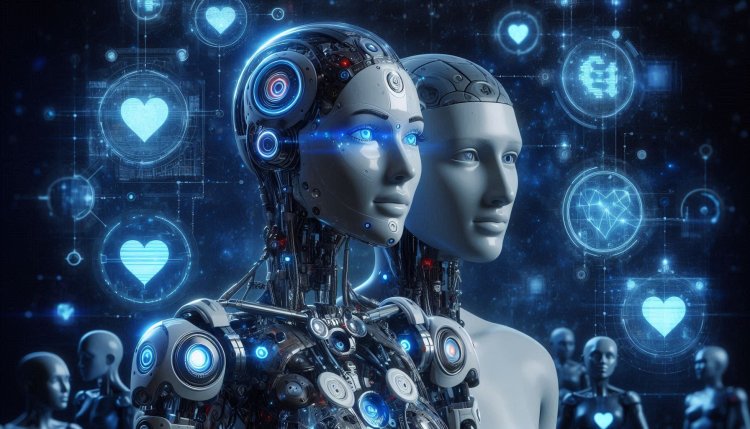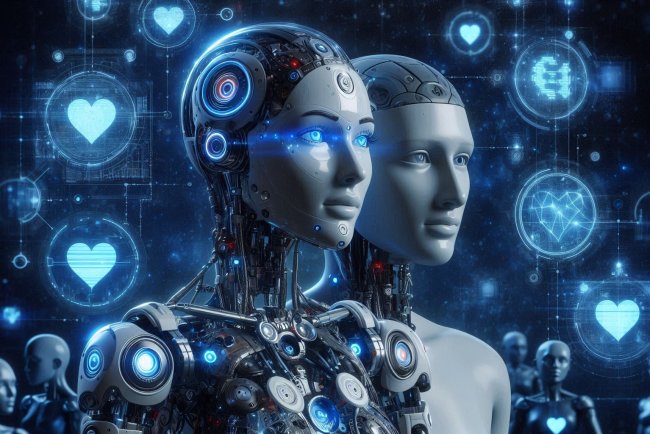AI trends: Emerging technologies and applications
Discover the latest AI trends, emerging technologies, and applications shaping the future. Stay ahead of the curve with insights from industry experts.

AI Trends: Emerging Technologies and Applications
Artificial Intelligence (AI) is rapidly evolving and transforming various industries. From healthcare to finance, AI technologies are being utilized to improve efficiency, accuracy, and decision-making processes. In this article, we will discuss some of the emerging AI technologies and applications that are shaping the future.
1. Machine Learning
Machine Learning is a subset of AI that enables computers to learn from data without being explicitly programmed. It is widely used in various applications such as image recognition, natural language processing, and recommendation systems. With the advancements in deep learning algorithms, machine learning models are becoming more accurate and efficient.
2. Natural Language Processing (NLP)
Natural Language Processing is a branch of AI that focuses on the interaction between computers and humans using natural language. NLP technologies enable machines to understand, interpret, and generate human language. Applications of NLP include chatbots, sentiment analysis, and language translation.
3. Computer Vision
Computer Vision is a field of AI that enables machines to interpret and understand visual information from the real world. It is used in applications such as facial recognition, object detection, and autonomous vehicles. With the advancements in deep learning algorithms, computer vision systems are becoming more accurate and robust.
4. Robotics
Robotics is an interdisciplinary field that combines AI, machine learning, and mechanical engineering to create intelligent machines that can perform tasks autonomously. Robotic systems are used in industries such as manufacturing, healthcare, and agriculture. With the advancements in AI technologies, robots are becoming more versatile and capable of performing complex tasks.
5. Autonomous Vehicles
Autonomous Vehicles, also known as self-driving cars, are equipped with AI technologies such as computer vision, machine learning, and sensor fusion to navigate and operate without human intervention. Autonomous vehicles have the potential to revolutionize transportation by improving safety, reducing traffic congestion, and increasing efficiency.
6. Healthcare
The healthcare industry is leveraging AI technologies to improve patient care, diagnosis, and treatment. AI applications in healthcare include medical image analysis, predictive analytics, and personalized medicine. AI-powered systems can analyze large volumes of medical data to provide insights and recommendations to healthcare professionals.
7. Finance
The finance industry is adopting AI technologies to enhance fraud detection, risk management, and trading strategies. AI applications in finance include algorithmic trading, credit scoring, and chatbots for customer service. AI-powered systems can analyze financial data in real-time to make informed decisions and predictions.
8. Virtual Assistants
Virtual Assistants, such as Amazon Alexa and Google Assistant, are AI-powered applications that can perform tasks and provide information through voice commands. Virtual Assistants use NLP and machine learning technologies to understand and respond to user queries. Virtual Assistants are becoming increasingly popular in homes and businesses.
9. Edge AI
Edge AI refers to the deployment of AI algorithms on edge devices, such as smartphones, IoT devices, and drones, to process data locally without relying on cloud servers. Edge AI enables real-time processing, reduced latency, and improved privacy. Edge AI applications include smart cameras, predictive maintenance, and autonomous drones.
10. AI Ethics and Bias
As AI technologies become more pervasive, concerns about ethics and bias have emerged. It is crucial to ensure that AI systems are developed and deployed responsibly to mitigate potential harms and biases. Organizations are increasingly focusing on AI ethics and bias mitigation strategies to build trust and transparency.
Conclusion
AI technologies are revolutionizing industries and creating new opportunities for innovation. From machine learning to robotics, AI applications are reshaping the way we live and work. As AI continues to evolve, it is essential to stay informed about the latest trends and developments in the field. By leveraging AI technologies responsibly, we can harness the full potential of AI to drive positive change and improve society.
What's Your Reaction?

















